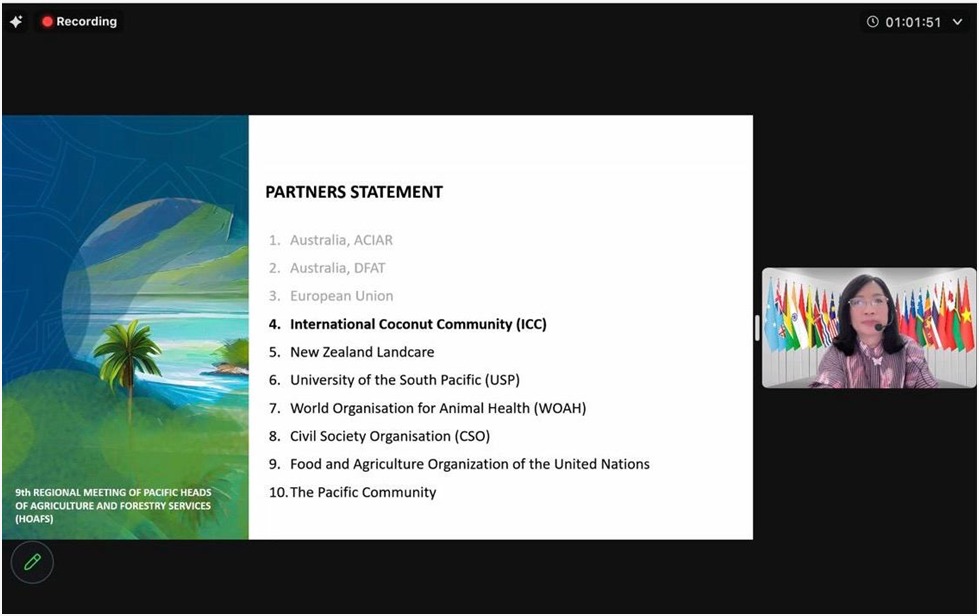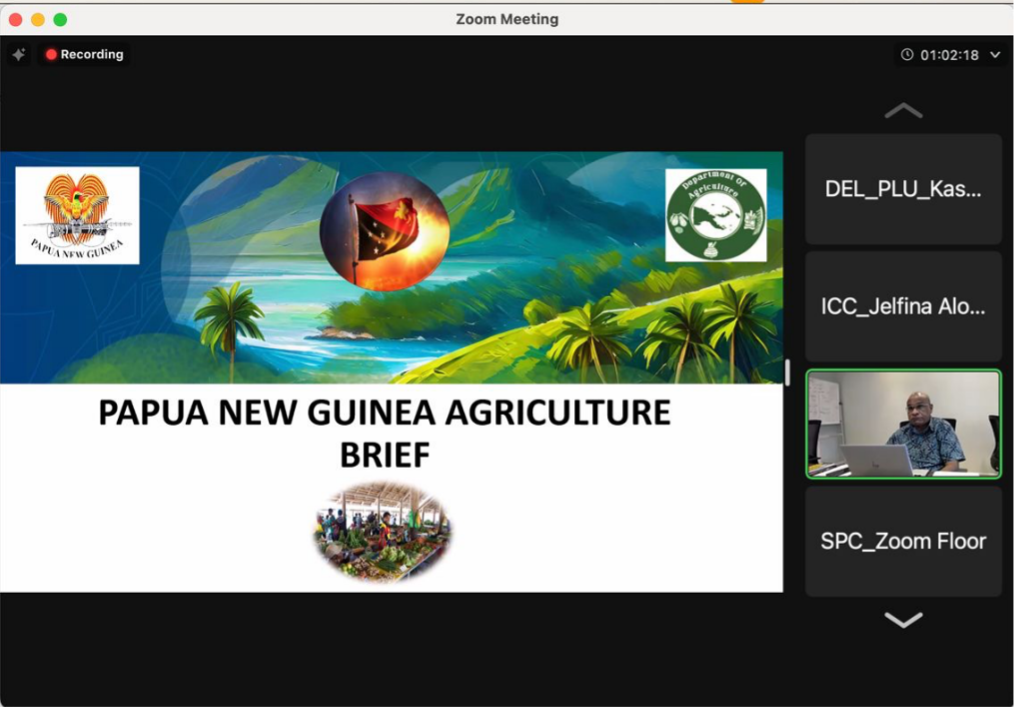The 9th Regional Meeting of Pacific Heads of Agriculture and Forestry Services (PHOAFS), hosted by the Government of Tonga and supported by the Pacific Community (SPC) and the Food and Agriculture Organisation (FAO), was held virtually from May 15th to 17th. The meeting focused on "Bio-Diversification via Green and Low-Carbon Agriculture & Forestry." The International Coconut Community actively participated as a partner organization, represented by Executive Director, Dr. Jelfina Alouw.

In her official statement, Dr. Jelfina expressed gratitude to the organizers and emphasized the meeting theme's alignment with the ICC's mission and vision. She highlighted the importance of biodiversity and sustainable practices in ensuring the resilience and prosperity of the agricultural and forestry sectors.
"The Pacific region, with its diverse biodiversity and the international coconut gene bank hosted by PNG, plays a crucial role in global initiatives for combating climate change and promoting sustainable development," She stated. "Embracing green and low-carbon approaches is essential for protecting the environment and improving the well-being of communities reliant on agriculture and forestry."
Dr. Jelfina introduced the ICC's Youth Empowerment Program, aimed at revolutionizing the coconut industry through innovation, sustainability, and inclusive growth. This program is designed to inspire and involve the younger generation in driving the coconut sector forward in an environmentally conscious and economically sustainable manner. Highlighting the role of coconut palms in carbon sequestration, she noted, "Coconut palms have the potential to sequester carbon, contributing to climate change mitigation. By prioritizing sustainable coconut cultivation, member countries can support carbon sequestration, livelihoods, and food security, while also enhancing soil carbon storage and biodiversity."
A significant announcement during her statement was the International Civil Aviation Organization (ICAO) recognition of non-standard coconuts as a viable feedstock for sustainable aviation fuel (SAF). This milestone, supported by the Japan Civil Aviation Bureau and ICC, signifies a growing market demand for coconuts as a source of SAF. Dr. Jelfina emphasized the need to address challenges of low productivity in coconut farming to meet this potential demand effectively.
Dr. Jelfina also highlighted the ICC's commitment to promoting knowledge and technology transfer related to coconut tissue culture, integrated pest management (IPM), and sustainable agricultural practices. She mentioned the upcoming COCOTECH international conference organized by the ICC, to be held from July 22-25, 2024, in Surabaya, Indonesia, and the ongoing training programs for all member countries, including the nine members from the Pacific region. "The number of member countries in the ICC is now 21, with 9 coming from Pacific countries. We are excited to welcome more members from other Pacific countries to join us," Dr. Jelfina noted.

In conclusion, Dr. Jelfina reaffirmed the ICC's commitment to green and low-carbon agriculture and forestry. She emphasized the importance of collaboration among all stakeholders to ensure the success of sustainable initiatives in the coconut industry. "Together, let us create a future where biodiversity thrives, economies grow sustainably, and our agricultural and forestry sectors flourish," she concluded.
The ICC remains dedicated to supporting the efforts of PHOAFS and its members in achieving common goals for a sustainable and prosperous future.

